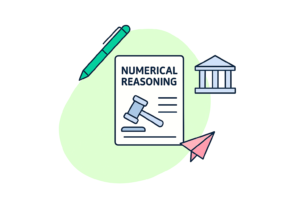Want to crack the judiciary exams like a pro? It’s time to power up your brain’s most underrated weapon, its ability to think critically and analytically. These essential skills will serve you well when tackling tough MCQs, deciphering complex passages, or writing crisp legal answers.
By refining your critical and analytical thinking, you’ll gain an edge in both the exam hall and the courtroom. Let’s explore the techniques that will help elevate your thinking and boost your performance, ensuring you’re ready to face any challenge that comes your way.
Why Critical Thinking = Exam Success

Critical thinking isn’t just some fancy term your professors throw around. It’s what separates top scorers from average ones. It helps you:
- Solve legal problems with clarity
- Spot flawed reasoning in MCQs
- Frame compelling answers in essays
- Think like a future Judge or Legal Eagle
10+ Brain-Boosting Habits to Build Legal Brilliance
1. Read Widely, Think Deeply
Go beyond your textbooks. Read about:
- Law & landmark cases
- Current affairs
- Social issues and policy changes
Why? Exposure to diverse perspectives helps you build contextual thinking and understand real-world implications of legal decisions.
2. Ask Questions Relentlessly
Turn curiosity into your superpower.
Keep asking:
- Why is this law framed like this?
- What are its implications?
- What if the facts changed?
Asking better questions = Getting better answers.
3. Use Mind Maps to See the Bigger Picture
Mind maps aren’t just pretty, they’re powerful.
Use them to:
- Connect laws, facts, and cases
- Organize long answers visually
- See patterns and interlinks faster
Tip: Use colors and arrows to show causation, contrast, or progression.
4. Analyze Data Like a Legal Sherlock
Train your brain to decode:
- Tables, charts, case statistics
- Legal data and trends
- Evidence in judgments
Practice “What does this data tell me?” and “What’s missing here?” You’ll soon be seeing beyond the obvious.
5. Master the Art of Logical Reasoning
Logical reasoning = Clear thinking under pressure. Learn and apply:
- Deductive & Inductive logic
- Syllogisms
- Spotting fallacies
Bonus: It helps in solving MCQs faster and smarter.
6. Join Group Discussions
Don’t study in a bubble! Engage in thoughtful legal discussions with peers. It helps you:
- Hear new viewpoints
- Defend your arguments
- Think on your feet
Debate. Question. Reflect. Repeat.
7. Embrace Intellectual Humility
Say it with me: “I don’t know everything, and that’s okay.” Openness to new ideas sharpens your thinking. It allows you to:
- Accept better arguments
- Acknowledge biases
- Grow beyond your current understanding
8. Innovate While Solving Legal Problems
Creativity isn’t just for artists, it’s key to legal reasoning. Break the routine.
- Look at problems from multiple angles
- Imagine alternate solutions
- Think about “what if” scenarios
Different perspectives = Unique, high-scoring answers.
9. Practice Self-Reflection
Every week, ask yourself:
- What went well in my prep?
- Where did I go wrong?
- How can I think better next time?
Reflection = Growth. Be honest and you’ll keep leveling up.
10. Connect the Dots Like a Pro
Legal problems aren’t isolated. Learn to:
- Relate law to policy, governance, society
- Link multiple issues to present a full picture
- Spot root causes behind legal challenges
E.g.: Judicial backlog? Connect it to infrastructure, manpower, legal procedures.
Real-Life Application: Legal Thinking in Action

Ever noticed how the best answers in mains or interviews don’t just quote sections, but analyze facts and build an argument? That’s what analytical thinking helps you do.
Scenario Practice:
- A law bans online content vaguely.
- Do you just memorize the statute?
- Or do you apply Article 19, test of reasonableness, and recent Supreme Court verdicts?
That’s critical thinking at work, and it’s what helps you stand out from the crowd.
Final Word: Think Like a Judge, Not Just a Student
Analytical and critical thinking are muscles. The more you use them, the stronger they become.
- Read more
- Think deeper
- Reflect often
- Question everything
- And always, connect your learning to the real world.
📢 Ready to Upgrade Your Thinking Game?
Get access to curated exercises, real-case breakdowns, and logic-building tools, only at Edzorb Law.










 Features
Features






